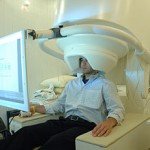ICMPC 12 Day 2: Morning keynote
 Now, dear reader, every now and again these things happen to all of us. Your trusted roving reporter…overslept. I had a marvellous evening in the company of the extended Music, Mind and Brain group family out in Thessaloniki. One of our present PhD students, Georgina, spent several years living here so she knew a quiet little street that we could essentially take over as our own and sit out with a few cold drinks and lovely local tapas dishes.
Now, dear reader, every now and again these things happen to all of us. Your trusted roving reporter…overslept. I had a marvellous evening in the company of the extended Music, Mind and Brain group family out in Thessaloniki. One of our present PhD students, Georgina, spent several years living here so she knew a quiet little street that we could essentially take over as our own and sit out with a few cold drinks and lovely local tapas dishes.
There was even Cuban music playing (my weakness) which meant of course that I ended up dancing salsa with another lovely ex-MMB student, Christos, who is currently working on his PhD in Germany. I am told there is a video somewhere…might avoid YouTube for a while!
It was a lovely evening in the warm Greek port but I am fully aware of my limitations (I am a morning person not a night owl) so I was home tucked up in bed by 11pm ready for the day ahead.
 Sadly my brain was not. It was determined to run over the first day of the conference in minute detail, fascinated by all the new things it had learned and very excited to begin the process of slotting all these new ideas into my memory. As a result my poor old body did not get to sleep until well gone 3am.
Sadly my brain was not. It was determined to run over the first day of the conference in minute detail, fascinated by all the new things it had learned and very excited to begin the process of slotting all these new ideas into my memory. As a result my poor old body did not get to sleep until well gone 3am.
Then my brain committed the ultimate sin of failing to wake me in time for the start of Barbara Tillmann’s much anticipated key note on musical experience and expertise. I was mortified when I realised the time and flew down to the lecture room with only a couple of bread rolls and an orange in my bag, snatched quickly in passing from the breakfast room.
Believe me – my brain received a very stern talking to about this lack of service and so far has been very contrite.
While I missed the start of Barbara’s talk I did manage to see her excellent review of the latest studies in congenital amusia. I was so very pleased to feel that the field is moving on from the old days of a somewhat over-emphasised focus on pitch perception into an exploration of memory and implicit music processing. Barbara has really done some fascinating studies in this area and I know that my colleague and friend Diana Omigie, who has been doing similar studies, is very inspired by her work.
 For those of you who may not know, congenital amusia is a neurodevelopmental disorder that impacts on music perception (first) and production (second). Barbara and I have done a number of studies over the years that have exposed the extent of the pitch memory problems in amusia. Certainly in our sample of amsuic participants we have a number of individuals who show reasonably normal pitch perception but very poor pitch memory, being able to hold on to only 2 or 3 tones in their mind before incoming musical sounds ‘wipe out’ their fragile representation. You can read more about one of our pitch memory studies here.
For those of you who may not know, congenital amusia is a neurodevelopmental disorder that impacts on music perception (first) and production (second). Barbara and I have done a number of studies over the years that have exposed the extent of the pitch memory problems in amusia. Certainly in our sample of amsuic participants we have a number of individuals who show reasonably normal pitch perception but very poor pitch memory, being able to hold on to only 2 or 3 tones in their mind before incoming musical sounds ‘wipe out’ their fragile representation. You can read more about one of our pitch memory studies here.
Barbara presented the background evidence for impaired memory processing in amusia and then went on to present several new/in press studies that build on this work and further investigate the apparent dissociation between intact implicit processing of music and impaired explicit processing (researched also by my friend and colleague Diana Omigie)
 Barbara presented her own study that demonstrated intact implicit processing of melodic expectations in amusics using a probe tone/chord paradigm. She also showed evidence from a new MEG study that tracked brain responses during a music memory task (simple melody recognition) She found smaller N1 ERPs during the encoding phase and delayed latencies within encoding and recognition time points, suggesting amusics do exhibit an abnormal neural response to musical tone stimuli when they are trying to remember them.
Barbara presented her own study that demonstrated intact implicit processing of melodic expectations in amusics using a probe tone/chord paradigm. She also showed evidence from a new MEG study that tracked brain responses during a music memory task (simple melody recognition) She found smaller N1 ERPs during the encoding phase and delayed latencies within encoding and recognition time points, suggesting amusics do exhibit an abnormal neural response to musical tone stimuli when they are trying to remember them.
She then showed a really nice simple study where she put these two findings together (implicit processing and memory) and asked, might the amusics intact implicit processing of melody help their impaired memory? In other words, if you create to-be remembered tunes that are tonal and atonal, will they get an advantage of the tonal structure (as is the case in nonmusicians controls)?
It turns out that they don’t – amusics memory performance is equally poor in tonal and atonal conditions. I think this is a very important finding as it suggests there is a cognitive functional problem within the memory system that may be dissociated from whatever musical knowledge amusics may or may not possess on either an implicit or explicit level.
 She also presented a study which looked at subjective responses to atonal music in a real context. She played amusics short extracts of real romantic or early 20th century pieces and atonal versions of those same pieces. The amusics were asked questions like, would you buy the CD, and how well does it match to music that you are used to hearing. Their responses were very similar to those of matched controls indicating that much of their subjective responses to music are aided by their implicit knowledge of musical structure – they certainly seem to prefer the tonal sounds by these measures.
She also presented a study which looked at subjective responses to atonal music in a real context. She played amusics short extracts of real romantic or early 20th century pieces and atonal versions of those same pieces. The amusics were asked questions like, would you buy the CD, and how well does it match to music that you are used to hearing. Their responses were very similar to those of matched controls indicating that much of their subjective responses to music are aided by their implicit knowledge of musical structure – they certainly seem to prefer the tonal sounds by these measures.
 Barabara concluded her talk by discussing what we might be able to achieve by capitalising on the implicit rule processes that amusics seem to have acquired. If we can target their intact knowledge and at the same time be aware of their functional limitations (i.e. their memory span for tones) then we may be able to offer targeted and effective therapy interventions. At Goldsmiths we have already had some limited success with singing therapy in amusia but I am sure that the work Barbara presented today will foster well designed future studies in this area.
Barabara concluded her talk by discussing what we might be able to achieve by capitalising on the implicit rule processes that amusics seem to have acquired. If we can target their intact knowledge and at the same time be aware of their functional limitations (i.e. their memory span for tones) then we may be able to offer targeted and effective therapy interventions. At Goldsmiths we have already had some limited success with singing therapy in amusia but I am sure that the work Barbara presented today will foster well designed future studies in this area.
 All in all the day did not start well, but I was buzzing by the end of this key note and rushed upstairs to blog all about it for you guys whilst eating the orange that I had smuggled from the breakfast buffet. Next we have another round of 5 minute poster presentations where I will be learning all about ‘Health and wellbeing’ and ‘Musical experience and communication’….
All in all the day did not start well, but I was buzzing by the end of this key note and rushed upstairs to blog all about it for you guys whilst eating the orange that I had smuggled from the breakfast buffet. Next we have another round of 5 minute poster presentations where I will be learning all about ‘Health and wellbeing’ and ‘Musical experience and communication’….